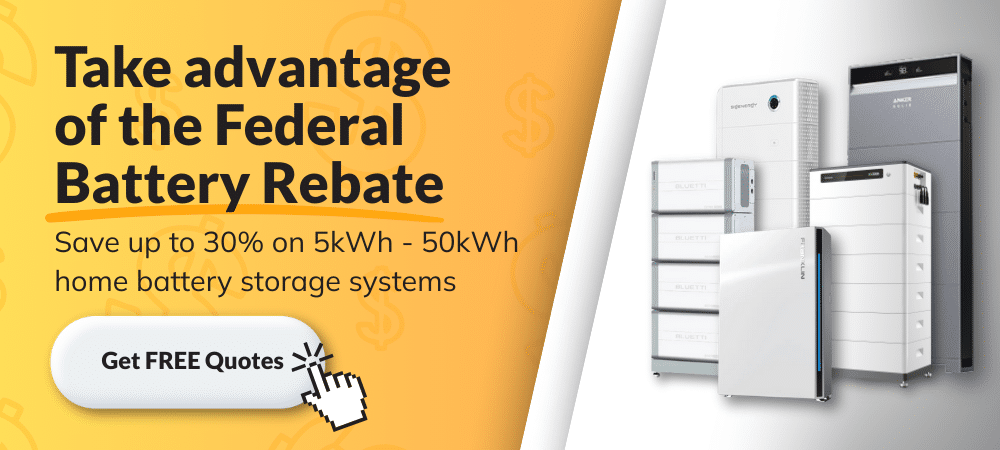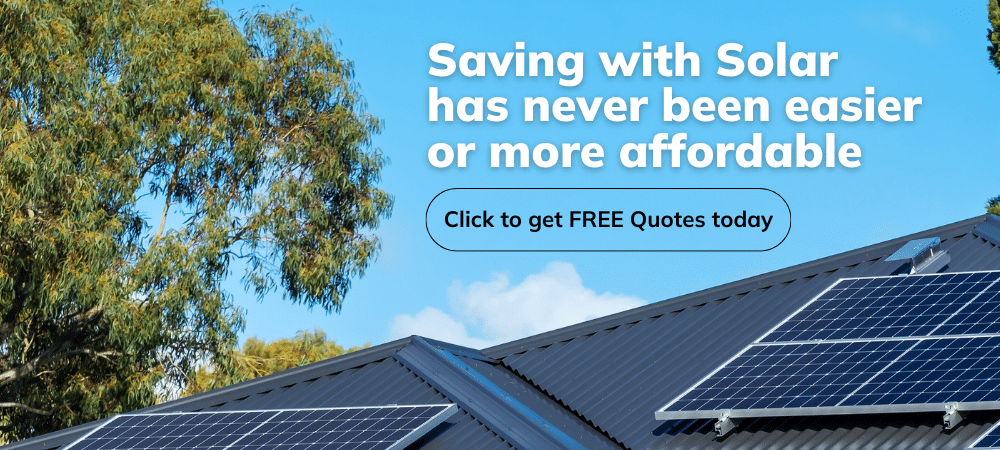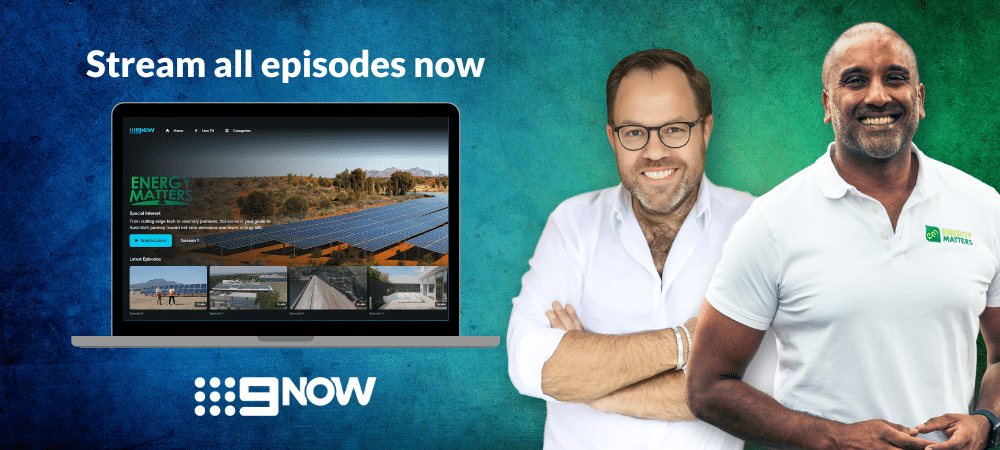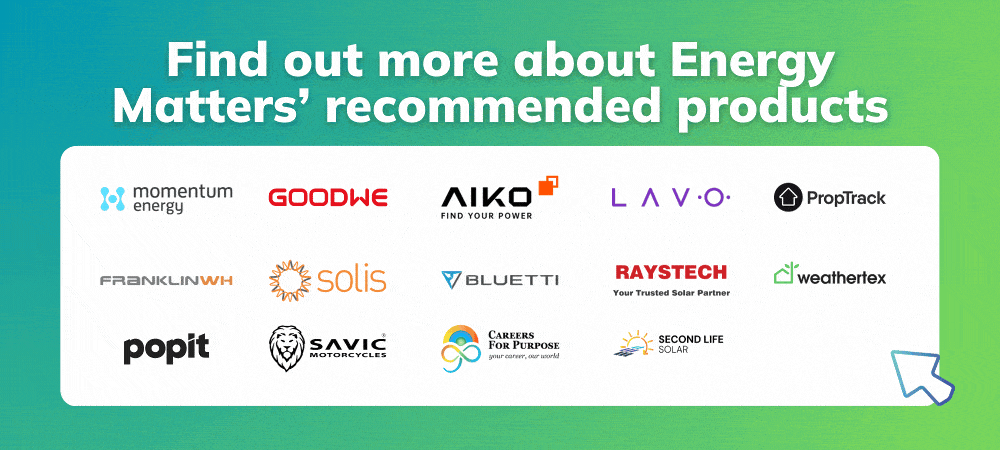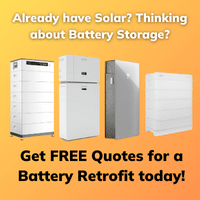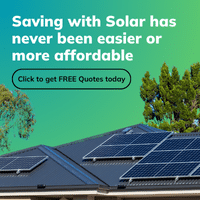In Queensland, Australia’s vast and sun-drenched expanse, the demand for reliable and sustainable energy solutions has grown exponentially in recent years. With the escalating concerns over climate change and the pursuit of energy independence, many Queenslanders are turning off grid solar systems to power their homes and businesses.
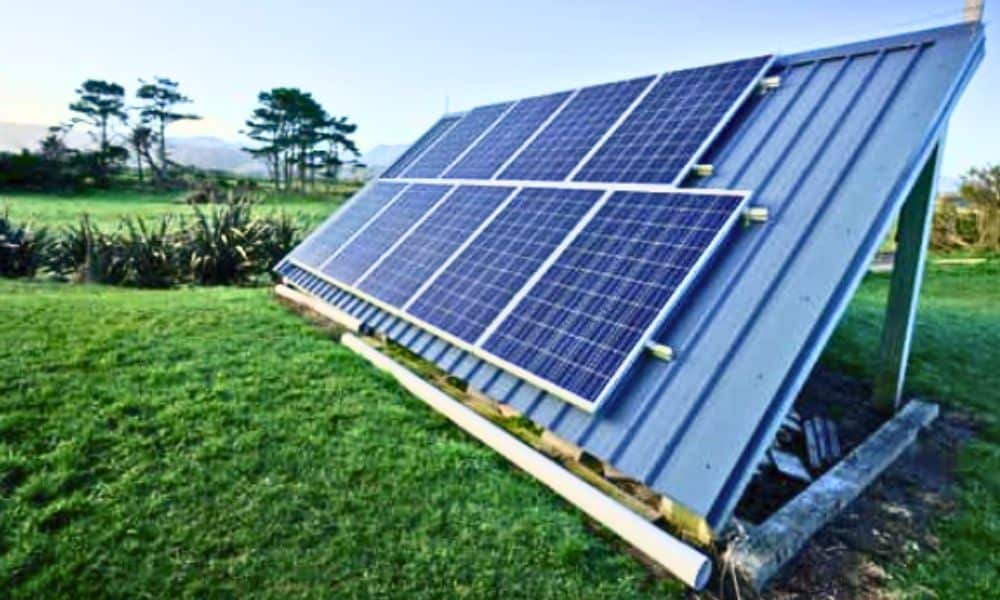
On this page
Exploring solar QLD options tailored to your needs is a thoughtful step towards a greener future. If you’re considering the shift to solar QLD, obtaining FREE solar quotes from Energy Matters can be a valuable starting point, providing insights without any pressure or obligation.
Understanding the possibilities of solar energy is a key element in making informed choices for a more sustainable tomorrow.
Energy Matters has been a leader in the renewable energy industry since 2005 and has helped over 40,000 Australian households in their journey to energy independence.
Let us discuss and choose the best quote that suits your needs and budget, and we can connect you with our trusted local installers, who will provide up to 3 FREE quotes for your home and business solar energy system.
Off grid solar power systems Brisbane | Stand alone solar systems
An off grid solar power system is also known as stand alone solar system, an autonomous energy solution that operates independently of the main electricity grid. Unlike grid-tied solar systems connected to the utility grid, off grid or stand alone power systems store excess energy in batteries to be used during periods of low solar production or grid outages. They are particularly popular in rural or remote regions of Queensland, where access to the electricity grid might be limited or expensive. Learn more about Getting Started with Stand Alone Solar Power Systems – an Off Grid Solar System.
Components of an off-grid solar system in QLD
Solar Panels: The heart of any off grid solar system installation, solar panels capture sunlight and convert it into direct current (DC) electricity.
Many high-performance and durable solar panels can provide reliable power for off-grid solar systems in QLD, ensuring long-term savings and sustainability. REC solar panels are one of the top choices in solar QLD solutions for homeowners and businesses looking to maximise energy efficiency.
For more information on selecting the right solar panels, visit our Choosing Solar Panels guide.
Charge controller: This crucial component regulates the flow of electricity from the solar panels to the batteries, preventing overcharging and damage.
Batteries: Energy storage is a fundamental aspect of most off grid solar solutions systems. Deep-cycle batteries are often used in these solar battery systems, and store excess electricity generated during sunny periods for use during cloudy days or at night.
Inverter: An inverter converts the DC electricity from the batteries into alternating current (AC) electricity, suitable for powering household appliances and connected devices.
Check our page for our recommended solar products.
Backup generator: Some off grid systems incorporate backup generators that run on diesel, gas, or other fuel sources to supplement power during extended periods of low solar production.
Check our page to learn more about off grid solar power components.
How does off grid solar work
Off-grid solar systems are a great way to generate your own electricity and become more self-sufficient. In Queensland, the sun shines for an average of 2,600 hours per year, making it an ideal location for installing off-grid solar.
Off-grid solar systems work by using solar panels to convert sunlight into electricity. This electricity is then stored in batteries, which can be used to power your home or business even when the sun is not shining.
- Solar panels convert sunlight into electricity.
- The electricity is stored in batteries.
- The batteries power your home or business.
- If the batteries run low, you can use a generator to supplement your power.
Learn more about how do off grid power systems work.
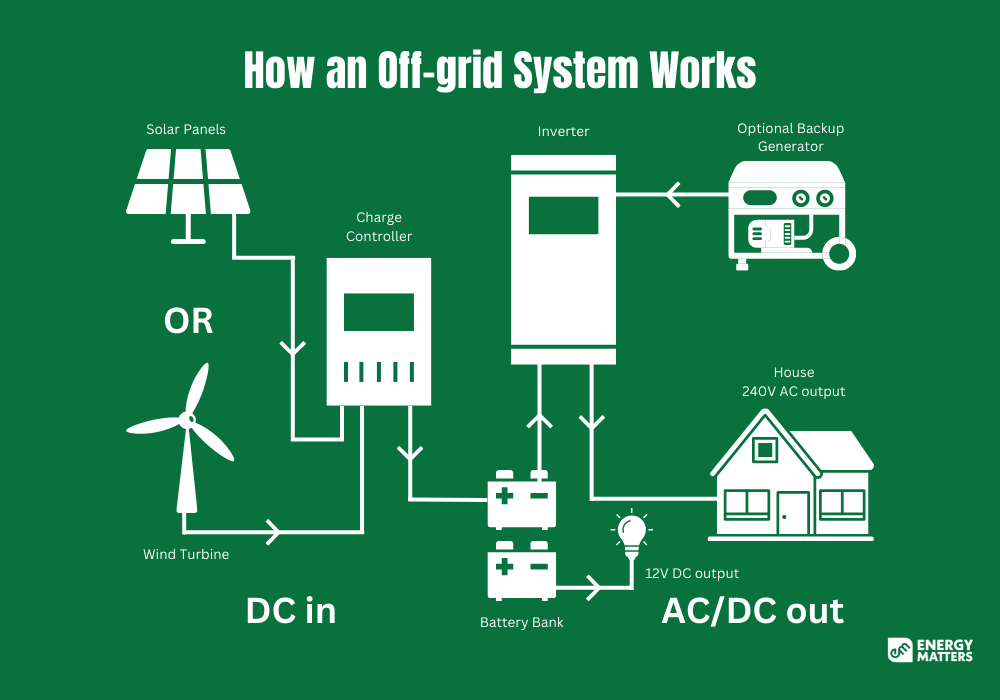
Benefits of off grid solar systems in QLD
Energy independence off grid work: By relying on solar panels and batteries, off grid users become self-sufficient and no longer rely solely on the main grid for their power needs.
Environmentally friendly: Off grid solar systems harness clean and renewable energy from the sun, reducing greenhouse gas emissions and contributing to a cleaner environment.
Cost savings: While the initial investment may be significant, off grid power solar systems offer long-term cost savings, as users are spared from fluctuating electricity prices and potential grid connection charges.
Reliability: Off grid solar systems offer a stable and reliable power supply, especially in areas with unreliable grid infrastructure or during natural disasters.
Challenges and considerations of off grid solar system in QLD
Initial cost: Setting up an off grid solar system can require a significant upfront investment, although it can pay off in the long run.
Battery lifespan: The longevity of batteries can impact the overall efficiency and cost-effectiveness of the system, as they may require replacement after a certain number of years.
System sizing: Properly sizing the system is crucial to meet the energy demands of the household or business, as undersized systems might lead to insufficient power supply.
Energy management: Users must carefully manage their energy consumption to avoid depleting battery reserves during periods of low solar production.
Government policies and incentives of off grid solar system in QLD
The Queensland government and the Australian federal government offer various incentives to promote the adoption of renewable energy, including off grid solar systems. These incentives may include:
Renewable Energy Certificates (RECs) or Small-scale Technology Certificates (STCs): These financial incentives help offset the initial setup costs of solar systems.
Feed-in Tariffs (FiTs): If excess power is generated and fed back into the grid, users may be eligible for FiTs, receiving credits or payments from the utility company.
Rebates and grants: Government rebates and grants support installing solar systems, particularly in remote and disadvantaged areas.
Read more about off grid solar rebates and incentives
Off grid solar install areas - Queensland
Off-grid solar systems can be installed in most parts of Queensland, but there are some areas where the solar potential is better than others. If you are considering an off-grid solar system, speaking to a qualified solar installer is important to discuss your options.
Some of the areas in Queensland where off-grid solar systems are a good option:
- Outback Queensland
- Remote areas
- Rural areas
- Properties with limited access to the grid
If you live in one of these areas, you may be eligible for government rebates or incentives to help offset the cost of an off-grid solar system.
Some of the areas in Queensland where off grid solar systems are popular:
- Far North Queensland
- Outback Queensland
- Sunshine Coast
- Gold Coast
- Fraser Island
Off grid solar system solutions across Queensland
There are plenty of alternative solar power sources available. The best off grid project solution for yourself varies based on your energy condition, location, and off-grid goals.
Which off-grid solar system in QLD is right for you?
If you are considering an off-grid solar system for your home or business in Queensland, there are a number of factors you will need to consider, such as the size of your system, the type of battery storage you will need, and the installation cost. However, with careful planning, an off-grid solar system can provide you with reliable, sustainable, and affordable power for many years to come.
Small house off grid solar QLD model (3-5kW)
The small house off grid model (3-5kW) is a solar power system designed for Queensland’s small homes, live-in sheds, and non-permanent dwellings. The system has a full battery storage and capacity of 3-5kW, which is enough to power the essential appliances in a small home, such as lights, refrigerators, and TV. All the parts and solar batteries are assembled in a plug-and-play system that a qualified electrician can easily install.
The small house off grid model is a great option for people who want to live off the grid or in remote areas without access to the power grid. The system is also a good choice for people who want to save money on their energy bills.
Medium home off grid solar system in QLD (6-10kW)
A medium home off-grid system in Queensland, with a capacity of 6-10kW, can provide enough power for a small to medium-sized home.
The amount of power that a medium home off-grid system can generate will depend on the size of the grid solar power system itself, the amount of sunlight in the area, and the daily energy usage of the home. In Queensland, a 6-10kW system can typically generate enough power to meet the needs of a home that uses 20-40kWh of electricity per day. This system is ideal for weekend homes, modest vacation homes, and two-person dwellings.
Large home off grid solar system in QLD (18-32kW)
A large home off-grid system in Queensland, Australia is a self-sufficient solar power system that can provide all the electricity needs of a standard three- or four-bedroom home, small businesses standalone power systems, stations, and farms. The system typically has a storage capacity of 18-32kW, which is enough to power the home for several days, even if there is no sunlight.
Is solar QLD energy suitable for your business?
Solar energy has numerous advantages that are worth investigating. Investing in solar will minimise your operational costs, reduce your company’s carbon footprint, and prepare it for the future. A commercial property with a solar installation is excellent for business.
When installing commercial solar for a company, it is crucial to be informed of all types of federal government solar rebates, incentives and the many benefits these provide, as they may help Australian businesses become future-ready and sustainable for years to come.
Contact us today for up to 3 FREE quotations from commercial solar firms we’ve pre-qualified and vetted for their track record of delivering Australia’s best business solar systems.








